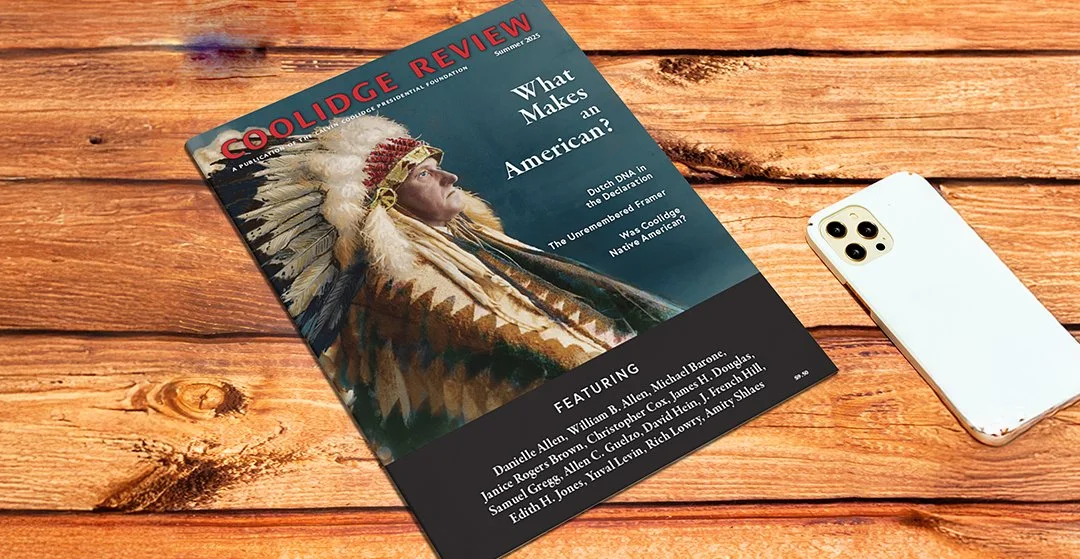What Makes an American?
By the Editors
This Editor’s Note appears in the new Summer 2025 issue of the Coolidge Review. Request a free copy of the print issue.
“What then is the American, this new man?”
Answering his own question in 1782, the French American J. Hector St. John de Crèvecœur noted the insignificance of ancestry to American identity. Americans had a “strange mixture of blood” that “you will find in no other country,” Crèvecœur wrote. Rather, what mattered were ideas. The American “acts upon new principles; he must therefore entertain new ideas, and form new opinions.”
Calvin Coolidge held the same view. As noted in a new essay that appears in the Summer 2025 issue of the Coolidge Review, Coolidge wondered whether he had Native American ancestry. But he believed above all else in “Americanism,” which had nothing to do with race, creed, or place of origin. He regarded differences in these areas as “accidental and unessential.”
Ideas mattered most to the Founders as well. Americans tend to think of those ideas as coming primarily from England. To be sure, the Founders looked to the British Constitution, common law, and English thinkers such as John Locke and William Blackstone. But the Dutch profoundly influenced the American Founding also, as Michael Barone’s essay in the summer issue shows. So did Scottish Enlightenment thinkers like Adam Smith and Francis Hutcheson, as Samuel Gregg points out.
All these ideas came together in the Declaration of Independence, which Thomas Jefferson said “was intended to be an expression of the American mind.” In this issue you will find scholars, opinion leaders, and policymakers reflecting on the Declaration. Their material will be useful to teachers, families, and readers as we approach 2026, the 250th anniversary of the Declaration.
As Coolidge reminded us, the Declaration is not outdated; it is definitive: “If all men are created equal, that is final. If they are endowed with inalienable rights, that is final. If governments derive their just powers from the consent of the governed, that is final. No advance, no progress can be made beyond these propositions.”
It is, however, up to us to reinforce these principles as we approach 2026.
If you’d like to receive a complimentary copy of the Summer 2025 print issue, just fill out this simple form.
This Editor’s Note appears in the Summer 2025 issue of the Coolidge Review. Request a free copy of the print issue.


